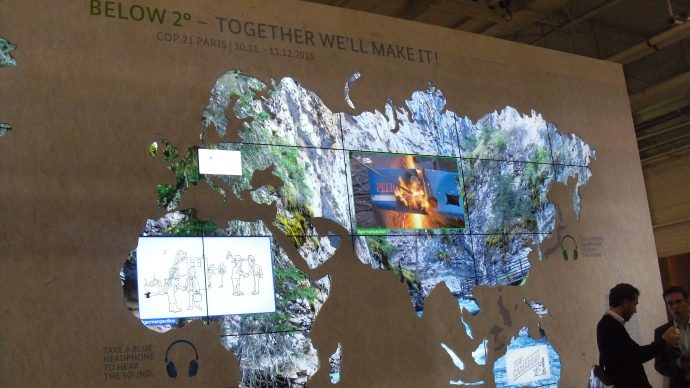Det fremgår af tal fra NASA og NOAA offentliggjort onsdag.
Her et udpluk fra NASA's hjemmeside:
Earth’s 2016 surface temperatures were the warmest since modern recordkeeping began in 1880, according to independent analyses by NASA and the National Oceanic and Atmospheric Administration (NOAA).
Globally-averaged temperatures in 2016 were 1.78 degrees Fahrenheit (0.99 degrees Celsius) warmer than the mid-20th century mean. This makes 2016 the third year in a row to set a new record for global average surface temperatures.
Third record year in a row
“2016 is remarkably the third record year in a row in this series,” said GISS Director Gavin Schmidt. “We don’t expect record years every year, but the ongoing long-term warming trend is clear.”
The planet’s average surface temperature has risen about 2.0 degrees Fahrenheit (1.1 degrees Celsius) since the late 19th century, a change driven largely by increased carbon dioxide and other human-made emissions into the atmosphere
Læs hele artiklen fra NASA her:
https://www.nasa.gov/press-release/nasa-noaa-data-show-2016-warmest-year-on-record-globally
Reaktioner
Både eksperter og civilsamfund har reageret på nyheden. Her er kommentarer, vi har modtaget på redaktionen:
John Nordbo, Klimachef ved WWF:
"Det er en barsk realitet, at klimaet er ude af kontrol. Varmerekorder, skrumpende is og naturkatastrofer minder os hele tiden om, at det er pinedød nødvendigt at sætte tempoet i den grønne omstilling op. Med Trump og hans klimaskeptiske hold ved roret i USA går den globale klimaindsats en højst usikker tid i møde, og Danmark må være med til at lægge pres på ham.
Uden det amerikanske lokomotiv i klimaindsatsen bliver det mere nødvendigt end nogensinde, at der er lande, som viser, at det er muligt at omstille til et velfærdssamfund forsynet af grøn energi. Jeg håber, at regeringen efter et år med foden på bremsen vil speede op for Danmarks klimaindsats".
Michael Mann, Climate Scientist:
"For the first time in recorded history, we have now had three consecutive record-warm years for both the globe and the Northern Hemisphere. The likelihood of this having happened in the absence of human-caused global warming is minimal. As we have shown in previously published work (http://www.nature.com/
Kevin Trenberth, Climate Scientist:
"The weather experienced around the world is a combination of natural variability plus global warming from human influences. The conditions experienced in the past year has had some unusual and unique aspects to it because of the super-El Nino event, but it shows us the sort of thing that will become routine in a decade or so. This includes record numbers and record intensity of hurricanes and typhoons, record wide spread heavy rains and flooding (think Houston, Louisiana, the Carolinas (hurricane Matthew), and now California), record drought, heat waves and wild fires, and increasing inundations in coastal regions from rising sea level. The costs from the added boost from global warming are in the tens of billions of dollars each year.
"While there may be some cost in mitigating climate change, such as from a carbon tax, there are already major costs in damages, and yet if sensible approaches are implemented in the right way for mitigation and building resilience, the increases in energy efficiency can actually make it a net gain, not only for the planet for for everyone.
"Whether things are done in the right way is largely determined by national policy and politicians.”
Gerald Meehl, Climate Scientist:
"Though some years will be warmer than others, the overall trend over multiple decades will inevitably be upward as long of concentrations of CO2 in the atmosphere keep increasing."
Professor konrad Steffen, Director of the Swiss Federal Research Institute WSL
“Given that for the entire year of 2016, CO2 levels were for the first time (in at least a million years!) above 400 ppm, extreme warming for 2016 is not a surprise. This is the very issue we have been discussing here at Arctic Basecamp at Davos with world leaders in science, politics and business. The time for action is now!”
Professor Gail Whiteman, Rubin Chair in Sustainability in Business at the Pentland Centre, Lancaster University
“Leaders need to know that Arctic change is the most visible sign of ongoing global warming. The global risks to the agricultural, insurance and infrastructure industries will directly affect our human way of life. The Arctic Basecamp is here in Davos to bring this message home.”















